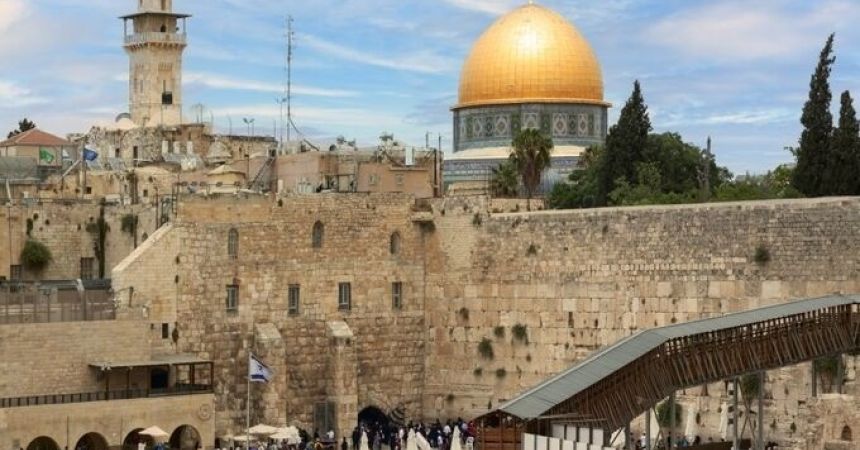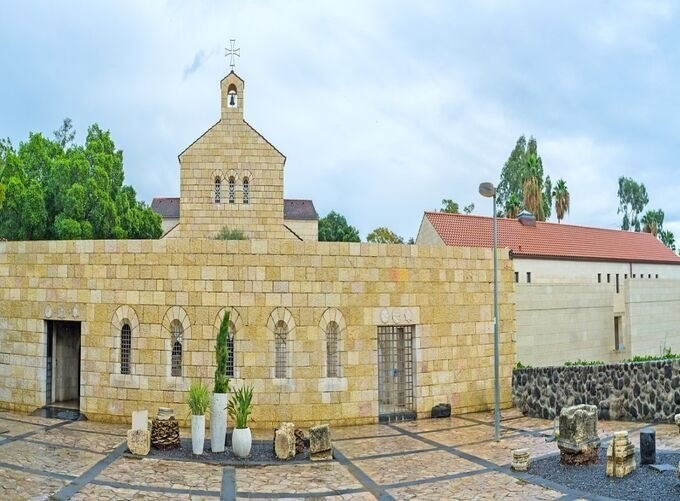
Jerusalem Weather in July
July in Jerusalem marks the height of summer, bringing some of the warmest and driest conditions of the year. This month offers a unique opportunity to experience the city in its full summer splendor, with long sunny days and warm temperatures. This comprehensive guide will explore the weather patterns in Jerusalem during July, provide tips for travelers, and help you make the most of your visit to this historic city.
Introduction to Jerusalem’s July Climate
July in Jerusalem is characterized by high temperatures and minimal rainfall. The city experiences classic summer weather with abundant sunshine and dry conditions. Understanding the climate and planning accordingly will enhance your experience, allowing you to enjoy outdoor activities and explore the city's rich history and culture.
Temperature Trends in July
-
Average Highs and Lows:
In July, Jerusalem experiences some of its highest temperatures of the year. Average daytime highs range from 32°C to 37°C (90°F to 99°F), while nighttime lows generally fall between 20°C and 24°C (68°F to 75°F). The days are typically hot, and the nights are warm and pleasant, providing a clear indication of summer's peak.
Historical Temperature Patterns:
July is one of the hottest months in Jerusalem, following June’s transition into summer. Historical data shows consistent high temperatures throughout the month, with a noticeable increase in heat compared to earlier spring months. The pattern is stable, with few variations in temperature from day to day. -
Temperature Fluctuations:
While July is predictably hot, there can still be some fluctuations in temperature. Extreme heat waves are possible, pushing temperatures above the average range. It is essential to stay informed about weather forecasts and plan your activities around the heat to ensure comfort and safety.
Precipitation and Humidity in July
-
Rainfall:
Rainfall in July is virtually nonexistent. The average precipitation is close to 0mm, and the likelihood of rain is extremely low. This dry weather is typical of the summer months in Jerusalem, making it ideal for outdoor activities and sightseeing without the worry of sudden showers. -
Snowfall:
Snowfall is impossible in July due to the high temperatures. The weather is consistently warm, and snow is not a concern during this time of year. The focus will be on managing the heat rather than dealing with cold weather conditions. -
Humidity:
Humidity levels in July are moderate, ranging from 40% to 60%. The combination of high temperatures and dry conditions results in a generally comfortable level of humidity. While it is manageable, the heat can make it feel warmer, so staying hydrated and using sun protection is crucial.
Daily Weather Patterns in July
-
Morning:
Mornings in July in Jerusalem start warm, with temperatures ranging from 20°C to 24°C (68°F to 75°F). The mornings are clear and sunny, offering a pleasant start to the day. Early risers can enjoy cooler temperatures for outdoor activities before the heat of the day sets in. -
Afternoon:
By afternoon, temperatures rise significantly, ranging from 32°C to 37°C (90°F to 99°F). The sun is strong, and the heat can be intense. It’s advisable to schedule outdoor activities for early morning or late afternoon to avoid the peak heat. Ensure you have adequate sun protection, including sunscreen, sunglasses, and a hat. -
Evening:
Evenings in July are warm and comfortable, with temperatures between 24°C and 28°C (75°F to 82°F). The nights offer a pleasant respite from the daytime heat, making it a good time for outdoor dining and evening strolls. Light clothing remains appropriate, and a light jacket or sweater might be useful in air-conditioned environments. -
Night:
Nighttime temperatures in July are warm, averaging between 20°C and 24°C (68°F to 75°F). The nights are typically comfortable and suitable for relaxing after a day of sightseeing. Air conditioning or fans might be needed indoors to maintain comfort during the warm nights.
What to Wear in Jerusalem in July
-
Lightweight Clothing:
Due to the high temperatures, lightweight and breathable clothing is essential. Opt for fabrics like cotton and linen that offer good ventilation and keep you cool. Light-colored clothing is also recommended as it reflects sunlight and helps maintain a comfortable body temperature. -
Sun Protection:
Sun protection is crucial in July due to the strong UV rays. Wear a wide-brimmed hat, sunglasses, and apply sunscreen with a high SPF. Consider clothing with UV protection and seek shade during the peak sun hours to avoid sunburn. -
Comfortable Footwear:
Comfortable and supportive footwear is necessary for exploring Jerusalem’s diverse terrain. Choose walking shoes or sneakers that provide good support and ventilation. Comfortable footwear will enhance your experience, especially when navigating historical sites and outdoor areas. -
Layering:
Although July is generally hot, layering can still be useful for managing indoor and outdoor temperature differences. A light jacket or sweater may be needed in air-conditioned places, but it should be easy to carry and pack.

Outdoor Activities and Sightseeing in July
-
City Exploration:
July is a great time to explore Jerusalem’s historical and cultural landmarks. The extended daylight hours provide ample time for visiting sites such as the Western Wall, the Church of the Holy Sepulchre, and the Dome of the Rock. Plan visits for early morning or late afternoon to avoid the peak heat. -
Walking Tours:
Walking tours are enjoyable in July if managed carefully. Start tours early in the morning or later in the evening to avoid the hottest part of the day. Stay hydrated and take breaks in shaded areas to manage the heat. -
Outdoor Adventures:
The warm weather in July makes it ideal for outdoor adventures, such as hiking in nearby nature reserves or visiting nearby attractions. Ensure you are well-prepared with plenty of water, sun protection, and appropriate clothing. -
Day Trips:
Consider day trips to nearby tourist destinations in Israel like the Dead Sea or Masada. The warm temperatures in July enhance your experience of these sites, offering opportunities for exploration and relaxation. Plan your trips with the weather in mind and pack accordingly.
Travel Tips for Visiting Jerusalem in July
-
Packing Essentials:
Pack clothing suitable for high temperatures, including lightweight and breathable fabrics. Don’t forget sun protection essentials such as sunscreen, a hat, and sunglasses. Comfortable footwear is crucial for exploring the city. -
Health and Safety:
Stay hydrated by drinking plenty of water and avoid strenuous activities during the hottest part of the day. Use sunscreen and wear protective clothing to prevent sunburn. Be mindful of heat-related symptoms and take breaks in cool, shaded areas. -
Navigating the City:
Jerusalem’s public transportation and taxis are convenient, but be prepared for potential traffic and parking challenges. If driving, ensure your vehicle is equipped for warm conditions and plan routes to avoid peak heat hours. -
Cultural Considerations:
Respect local customs by dressing modestly, particularly when visiting religious sites. Summer temperatures can be high, but maintaining appropriate attire is important for cultural sensitivity. Be aware of local practices and adapt your dress and behavior accordingly.
Cultural and Festive Considerations
-
Local Events:
July in Jerusalem may feature various cultural and community events. Look for local festivals, performances, and exhibitions that offer insight into Israeli culture. These events provide opportunities to engage with the local community and experience the city’s vibrancy. -
Cultural Activities:
Enjoy Jerusalem’s cultural scene by attending theater performances, visiting art galleries, or dining at local restaurants. The warm weather in July creates a pleasant environment for cultural experiences and outdoor dining. -
Holiday Celebrations:
July may include celebrations for various religious and cultural holidays. For example, Jewish holidays such as Tisha B'Av may fall in July. Participating in or observing these celebrations can offer a deeper understanding of Jerusalem’s cultural and religious life.
Comparison with Other Destinations
-
Regional Weather Comparison:
Compared to other cities in the region, Jerusalem’s July weather is hot and dry. Coastal cities like Tel Aviv and Haifa experience slightly higher humidity levels, while Jerusalem’s elevation results in slightly cooler temperatures. The dry conditions make Jerusalem a more comfortable option for some travelers. -
Weather in Neighboring Countries:
When traveling to Israel neighboring countries, you’ll find different climate patterns. Cities like Cairo experience hotter temperatures and higher humidity, while Amman shares similar temperature ranges but with cooler evenings. Each location offers unique weather experiences during July.
July in Jerusalem: Travel Tips
July in Jerusalem is a vibrant and warm time to visit, with plenty of sunshine and minimal rainfall. The warm temperatures and dry conditions make it an excellent time for exploring the city’s historical and cultural sites, enjoying outdoor activities, and participating in local events. By understanding the weather and preparing accordingly, you can ensure a comfortable and memorable experience in Jerusalem.
With careful planning and preparation, your trip to Jerusalem in July will be filled with enjoyable experiences, pleasant weather, and the opportunity to immerse yourself in the city’s rich history and culture. Embrace the warmth of summer and explore the beauty and vibrancy of Jerusalem during this exciting time of year.



